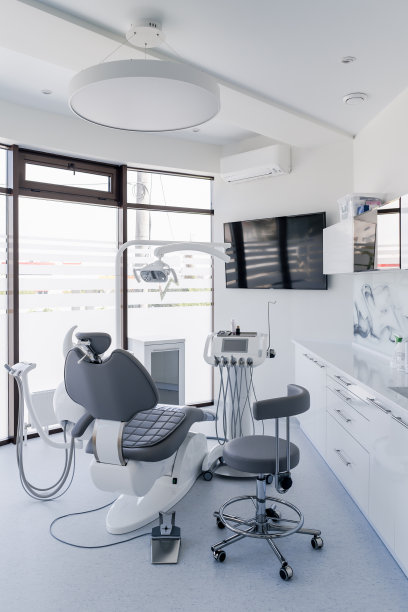Summary: Dental fillings are a common dental procedure necessary for restoring teeth affected by decay or damage. However, ensuring optimal oral health involves several important considerations before and after the procedure. From understanding the materials used in fillings to practicing proper oral hygiene post-treatment, aware patients can enhance their dental outcomes. This article discusses four key aspects that one should consider: selection of filling material, preparation for the procedure, post-filling care, and the significance of regular dental check-ups. These insights aim to empower individuals seeking dental fillings while underscoring the importance of maintaining overall oral health.
1. Understanding Dental Filling Materials

One of the foremost considerations before getting a dental filling is the understanding of various filling materials available. Common options include amalgam, composite resin, glass ionomer, and porcelain. Each material has unique attributes, durability, and aesthetic appeal. For example, composite resins blend seamlessly with natural tooth enamel, making them a popular choice for visible teeth. On the other hand, amalgam is renowned for its strength and longevity, particularly for molars.
Its important to discuss with your dentist the pros and cons of each material. Different types may be more suited to specific locations in your mouth or types of dental restoration needed. This discussion aids in making an informed choice that aligns with both your dental health needs and personal preferences.
Additionally, some patients may have allergies or sensitivities to certain materials, making it crucial to communicate any concerns with your dentist prior to the procedure. An informed decision will lead to better comfort and satisfaction with the dental filling.
2. Preparing for the Dental Filling Procedure
Preparation for getting a dental filling involves both mental and physical readiness. Understanding the procedure can alleviate anxiety. Most dental filling procedures are relatively straightforward and efficient, often completed within one appointment. Patients should ideally have a thorough discussion with their dentist about what to expect, including anesthesia options and aftercare instructions.
Another crucial aspect of preparation is maintaining good oral hygiene leading up to the appointment. Regular brushing and flossing help reduce bacteria and plaque buildup, minimizing potential complications during the procedure. Additionally, patients should avoid certain medications that may amplify bleeding, such as blood thinners, without consulting their healthcare provider.
If you experience anxiety about dental procedures, discuss relaxation methods, including sedation options, with your dentist beforehand. Mental preparation can aid in creating a more positive experience during the treatment.
3. Post-Filling Care for Longevity
Post-filling care is equally essential to ensure the longevity of the dental filling and overall oral health. After the filling procedure, patients may experience sensitivity in the treated area. It’s advisable to stick to soft foods and avoid extremely hot or cold substances for a few days. This will allow the filling to settle properly and help mitigate discomfort.
Maintaining proper oral hygiene after receiving a filling is vital. Patients should continue to brush twice a day and floss daily, being cautious around the filled area to avoid dislodging the material. Regular dental cleanings every six months and attentive self-care can significantly extend the life of the filling.
Moreover, it’s essential to monitor the filling for any signs of problems, such as cracks or discoloration. If any issues arise, contact your dentist immediately for an evaluation. Being proactive can prevent further complications and maintain optimal oral health.
4. Importance of Regular Dental Check-Ups
Regular dental check-ups are a crucial aspect of maintaining oral health, especially after receiving a filling. Scheduled visits allow your dentist to assess the condition of existing fillings and check for new cavities or gum diseases. Dentists often use these appointments to provide professional cleanings that eliminate stubborn plaque and tartar buildup, ensuring a clean slate for your teeth.
Furthermore, regular check-ups contribute to an overall understanding of your dental health trend. By monitoring any changes, dentists can offer timely interventions and maintain your oral hygiene at optimum levels. This is particularly important if any additional dental work is required beyond the filling.
In addition, many dental issues can go unnoticed without professional evaluation. Therefore, participating in routine dental visits not only supports the longevity of your fillings but also safeguards against more severe dental problems that may arise in the future.
Summary:
Proper understanding and preparation before and after receiving a dental filling are vital for optimal outcomes. From the choice of filling materials to personalized care plans post-treatment, being proactive can significantly enhance oral health. Regular dental check-ups ensure that any potential issues are identified and addressed early, promoting long-term dental wellness.
This article is compiled by Vickong Dental and the content is for reference only.
Vickong Dental
Vickong Dental is a large medical group established in Hong Kong in 2008 by professors from well-known medical universities in Guangdong and Hong Kong, as well as medical doctors from key national '985' universities (including Master's supervisors and senior professors). The chain of branches brings together expert dentists with PhDs and Master's degrees from Hong Kong and Mainland China, committed to providing high-quality dental treatment.
"Vickong Dental Practices the University Motto of 'Healing and Serving Society,' with a Stable Operation for Sixteen Years. It Has Been honored with Hong Kong Enterprise Leaders's Choice,' and is a Global Trusted Implant Center for the Nobel Implant System. Recommended by Hong Kong Metro Broadcast and Guangdong Television, it Serves Customers from Over Thirty Countries and Regions, Gaining the Trust and Favor of Citizens from the Guangdong-Hong Kong-Macau Greater Bay Area and Surrounding Cities.

Thousands of customers' unanimous praise
The most recognized and highly recommended dental service by customers in the Guangdong-Hong Kong-Macau Greater Bay Area
We Ensure You Receive Detailed Care and Attention Here
Hong Kong standards, Shenzhen prices, Your Trusted English-speaking dentists

Vickong Dental Medical-Grade Instrument Disinfection Process
Vickong Dental Medical-Grade Instrument Disinfection Process

Vickong Dental Chain: A Warm and Comfortable Environment for Treatment






Appointment Hours

Q&A
Why choose Vickong Dental?
Vickong Dental practices the university motto 「Medicine to Benefit Society」, with each branch bringing together highly qualified dentists with doctoral and master’s degrees from Hong Kong and the Mainland, and has maintained seventeen years of steady operation。Recipient of 「2024 Hong Kong Enterprise Leaders Brand」, 「2025 Hong Kong Enterprise Leaders Brand」, a Nobel Biocare Global Trusted Implant Center, and a brand recommended by Metro Radio Hong Kong and Guangdong TV。
To date, we have served customers from more than thirty countries and regions,earning exceptionally high word-of-mouth recognition and trusted recommendations from residents across the Guangdong-Hong Kong-Macao Greater Bay Area and surrounding cities
We have eight major branches in Zhuhai、Shenzhen,and a consultation and service assurance center in Hong Kong,so you can book a free consultation at any time for any questions,which is very reassuring.
If I do not accept the quotation after the CT scan, will I be charged??
No! As long as the actual treatment has not started, you will not be charged any fees.
Will there be any additional charges during the treatment process?
No, there won’t be any additional charges. Before treatment begins, we will clearly explain the treatment plan and its corresponding fees. Only after the patient agrees and signs the consent form will we proceed with the dental service.
Can I pay in Hong Kong dollars?
Yes. Vickong Dental accepts payment in Hong Kong dollars. The amount will be converted based on the exchange rate of the day, and the applicable rate will be clearly communicated to you in advance.
Can I reschedule my appointment at any time?
Yes. Please contact us via **WeChat** or **WhatsApp** as early as possible, providing your original appointment time and details, along with your preferred new date and time slot for rescheduling.













